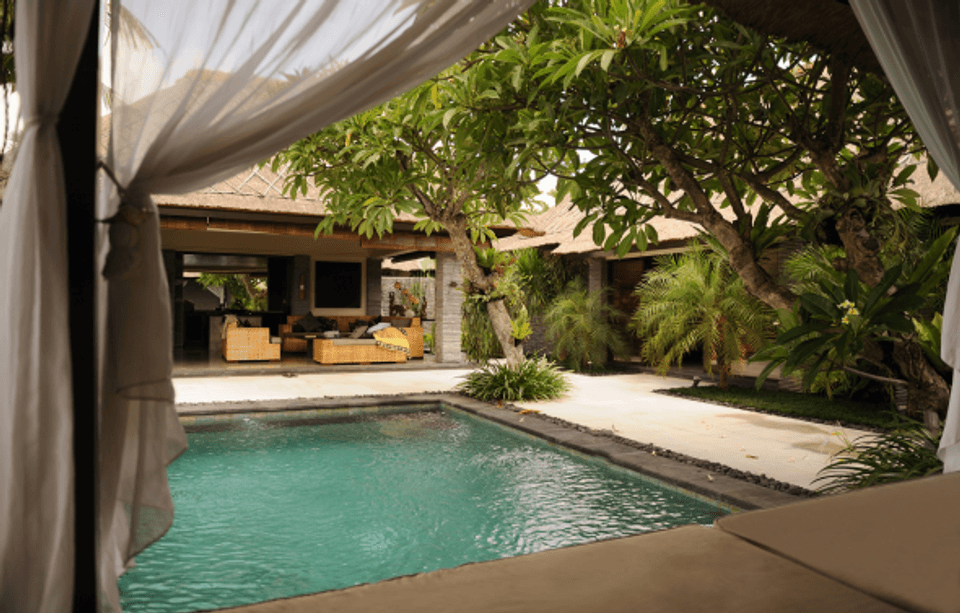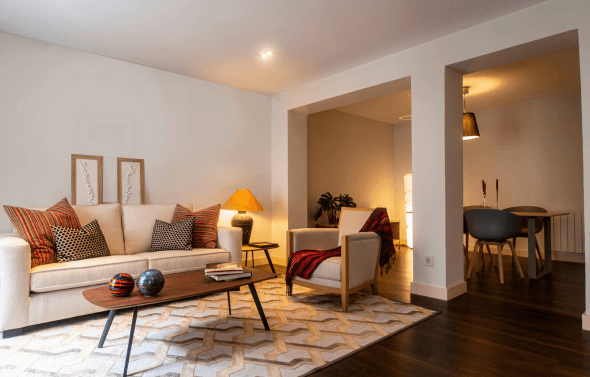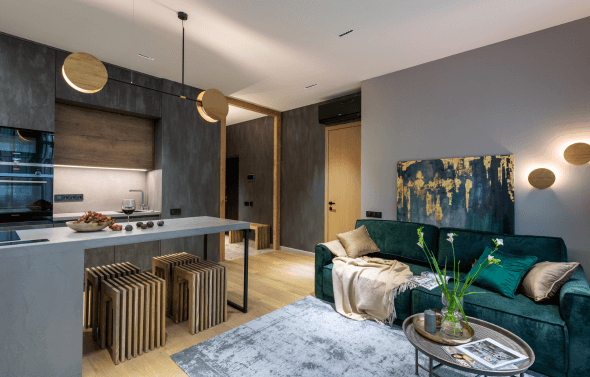Sonder vs. Airbnb: Which Platform Offers the Best Rental Experience?

Thinking about expanding beyond Airbnb? You’ve likely heard the name Sonder, it’s been making waves in short-term rental circles, especially among hosts looking for something a little different.
But here’s what most people miss: Airbnb and Sonder don’t actually play the same game.
Airbnb is a peer-to-peer marketplace. It connects travelers with everyday hosts—people renting out spare rooms, backyard cabins, or entire homes. Sonder, on the other hand, is a full-fledged hospitality brand. It leases, furnishes, and operates its own properties—no third-party hosts, no guest-to-host messaging—just sleek, apartment-style stays with a hotel feel.
So the real question isn’t “Which platform is better?” It’s “Which one aligns with how I want to run my vacation rental business?”
In this article, we’ll break down how Airbnb and Sonder compare on guest experience, control, operations and earning potential so you can decide which model actually fits your strategy.

What is Sonder?
Sonder was founded in 2014 by Francis Davidson and a group of university students who were frustrated with the inconsistency of short-term stays. Their idea was simple, combine the reliability of hotels with the space and design of vacation rentals and manage it all under one brand.
Since then, Sonder has grown into a global accommodation provider. It operates in more than 40 cities across 10 countries. Sonder properties can be found across cities like San Diego, New Orleans, London and Dubai, with about 9,000 units located in popular tourist destinations. The company leases full floors or entire buildings, renovates them into Sonder apartments and offers them to travelers seeking a more stylish, tech-driven alternative to traditional hotels.
What sets Sonder apart is its tech-first approach. Guests book online, check in via the Sonder app and manage their stay with features like digital concierge and contactless service. The result? A stay that feels like a modern, boutique hotel but without a front desk or shared spaces.

What Do Sonder and Airbnb Have in Common?
At first glance, Sonder and Airbnb might seem worlds apart, one is a managed hospitality brand, the other a global hosting platform. But from a guest’s perspective, there’s more overlap than you might think.
Both platforms cater to travelers looking for something more flexible and personal than traditional hotel rooms. Whether it's a design-forward studio in San Diego or a two-bedroom apartment in Barcelona, guests use both Airbnb and Sonder to find stylish short-term rentals in popular destinations.
They also share a strong focus on amenities. High-speed Wi-Fi, smart locks, fully equipped kitchens, these are pretty much standard across both. While Airbnb relies on hosts to provide these, Sonder controls the experience directly. But the end result for guests? A stay that feels comfortable, convenient and far from basic.
You'll also spot them on the same third-party platforms. Sonder apartments often appear right next to traditional Airbnb listings on sites like Booking.com or Expedia, competing for the same types of solo travelers, digital nomads, etc.
In short, Sonder and Airbnb might take different paths to get there, but they both offer modern alternatives to the typical hotel stay.

Sonder vs. Airbnb: What Type of Properties Do They Offer?
Sonder properties include fully managed Sonder apartments, lofts and the occasional boutique-style hotel. These are owned or leased by Sonder, not by individual hosts. So every unit comes with the same baseline: modern furnishings, high-speed Wi-Fi, professional cleaning and hotel-like amenities. Think consistency, the kind of stay where you know what you're getting, whether you're booking in New Orleans or London.
On the flip side, Airbnb listings run the full spectrum. You’ll find everything from downtown studios and suburban guesthouses to off-grid cabins, farm stays and even castles. It’s a playground for individual hosts, which means more variety, but also more variability.
So when it comes to property types, Airbnb gives you flexibility. Sonder gives you uniformity. The best choice really depends on how much control you want.

Sonder vs. Airbnb: What Type of Guests Do They Attract?
Sonder’s target audience is mostly made up of digital nomads, solo travelers and business guests who want hotel-like amenities in a home-style space. Many Sonder guests stay longer than the average Airbnb stay, often booking for work trips or extended visits.
Airbnb, however, attracts a broader mix from budget travelers to families, luxury seekers and anyone looking for unique accommodation types. It’s built for flexibility and variety, while Sonder leans into consistency and comfort.

Sonder vs Airbnb: How Their Business Models Work
At a glance, Sonder and Airbnb both offer short-term rentals in major cities. But under the hood, they run on completely different business models.
Airbnb is a peer-to-peer platform. Hosts, whether individuals or property managers, list their own spaces, set their own rules and manage their own guest communication. Airbnb charges a service fee on each booking. Most hosts pay a 3% fee, while some, especially those using Airbnb’s split-fee model or connected channel managers, may see higher percentages. Guests usually pay an additional 14–20% on top. This flexibility works well for individual hosts, but it also means quality and service can vary from listing to listing.
Sonder’s business model flips that. Instead of relying on others to list properties, Sonder leases entire buildings or floors, renovates them and runs everything in-house, from design and operations to check-in and housekeeping. The result is a fully managed stay with hotel-standard amenities, but in a residential setting. It's more work on their end, but it gives guests a level of consistency.

Sonder vs Airbnb: Guest Experience and Service Quality
When it comes to guest experience, Sonder stays are all about predictability. Every unit is part of a managed portfolio, meaning Sonder guests get the same high standards across the board whether they're booking a loft in New Orleans or a studio in Dubai. Expect on site amenities that match hotel standards like luggage storage, modern design, high-speed Wi-Fi and 24/7 customer support. The entire experience, from booking to check-in, is handled through the Sonder app, with keyless entry and no host meetups. It’s built for ease, especially for solo travelers and long-stay guests who don’t want surprises.
Airbnb, on the other hand, offers something entirely different, variety. Guests can stay in shared rooms, cabins, tiny homes, apartments or even castles. That kind of range makes Airbnb ideal for budget travelers, families and anyone craving a more personal or unusual stay in popular tourist destinations. But because individual hosts run each listing, quality and service can vary. Some Airbnb stays offer five-star comfort. Others? Not so much, think missing toilet paper, spotty communication or unclear instructions at check-in.
Airbnb depends on guest reviews and the Superhost program to highlight reliable listings, but the peer-to-peer nature of the platform means consistency isn’t always a given. That’s where Sonder has the edge, not in uniqueness, but in reliability.

Sonder vs Airbnb: Who Is Responsible for Property Management?
This is one of the biggest differences between Sonder and Airbnb, and it matters a lot if you're thinking about the hosting side.
With Sonder, the company handles everything. It leases the properties, furnishes them, hires the cleaning teams, sets up guest communication and manages all operations. Hosts don’t exist in the traditional sense. It’s a fully in-house model designed to deliver hotel-like amenities and consistent service across all Sonder properties.
Airbnb, by contrast, puts hosts in charge. Whether you're renting out a spare room or managing 20 vacation rental properties, you’re responsible for everything guest messaging, cleaning, restocking and handling issues during the stay. You can outsource to a property manager, but ultimately, the listing is yours to run. That gives individual hosts full control, but it also means more time, effort and coordination behind the scenes.
So if you want to be hands-on and build your own brand, Airbnb gives you that freedom. If you're looking for a completely managed experience without the day-to-day involvement, Sonder operates on a very different level.

Sonder vs Airbnb: Pricing and Earning Potential
If you’re comparing how much you can earn as a host, the key difference between Sonder and Airbnb comes down to control.
With Sonder, there is no hosting in the traditional sense. The company leases your unit or enters into a revenue-share agreement, then takes over completely, from pricing to operations. You get consistent monthly income with none of the guest management, pricing adjustments or maintenance headaches. It’s predictable, passive and low-risk.
But that stability comes with a ceiling. You won’t benefit from high season spikes or dynamic pricing. Your rental income is fixed no matter how well the unit performs.
Airbnb, on the other hand, puts the host in the driver’s seat. You set your own rates, manage your calendar, run promotions and scale as you grow. That means more work but also much more earnings. Especially in popular tourist destinations or competitive urban markets, Airbnb gives hosts the chance to earn significantly more than a fixed lease model.
To manage all that, many hosts use property management software like Hostaway. It connects directly with your Airbnb listings, automates guest communication, prevents double bookings, syncs your calendars and helps you stay on top of pricing. It’s the difference between juggling spreadsheets and running a real short-term rental business.
Which platform has a higher earning potential for hosts?
If you're measuring pure earning potential, Airbnb takes the lead. Because you control your rates, availability, and listing strategy, there's far more room to grow your rental income, especially if you’re in a high-demand area or running multiple vacation rental properties.
With the right setup (think smart pricing, strong reviews and tools like Hostaway to manage the backend), Airbnb can generate significantly more revenue than a fixed lease or revenue share through Sonder.

So, should you host with Airbnb or Sonder?
At the end of the day, it comes down to what kind of host you want to be.
If you're looking for full control, flexibility and the potential to scale a profitable short-term rental business, Airbnb is the clear winner. You can set your own pricing, build your brand and grow your income especially with the right tools like Hostaway to handle the heavy lifting.
But if you're a property owner who wants to keep things simple and hands-off, Sonder offers a reliable, low-effort option with consistent monthly income and none of the day-to-day stress.
There’s no one-size-fits-all answer. Sonder and Airbnb serve different purposes, attract different travelers and offer different outcomes. The best platform is the one that matches your goals, whether that’s building a short-term rental empire or locking in steady returns without lifting a finger.
Ready to find out how Hostaway can transform your business?
